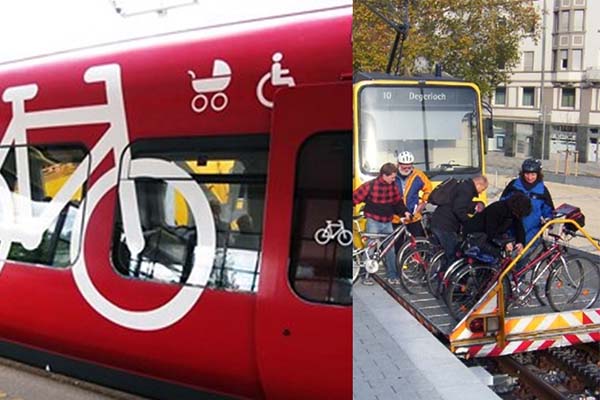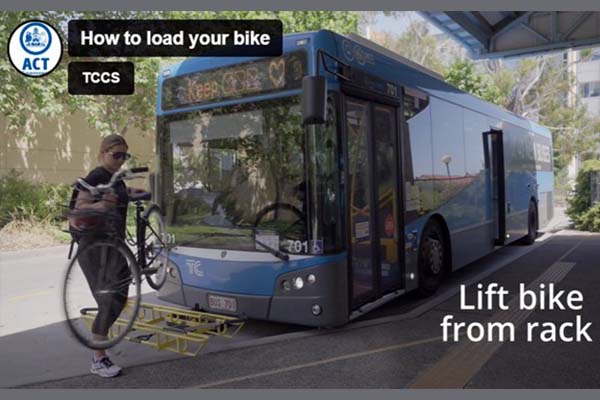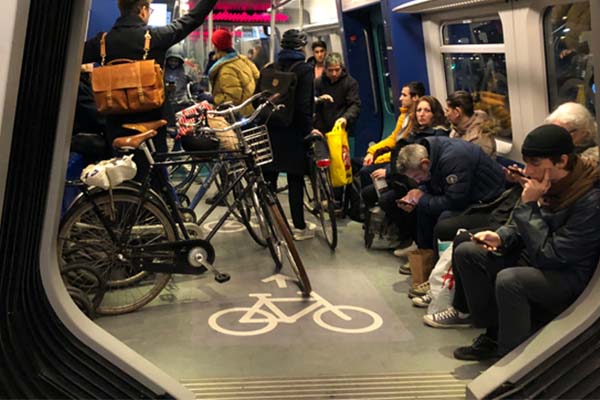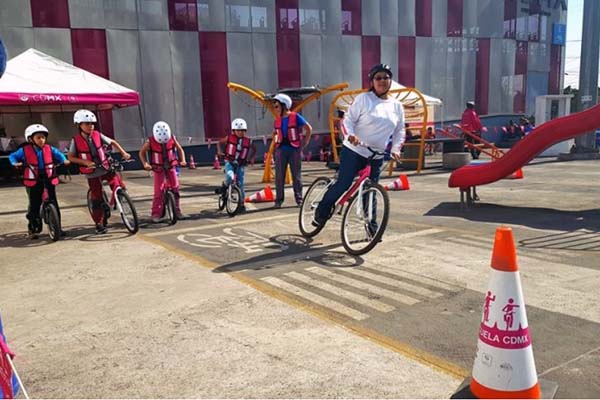Daily car trips (especially under 5 km) are unsustainable in so many ways
Traffic congestion currently costs the Australian economy over $19.1 billion annually and is predicted to skyrocket to $36.9 billion by 2036. For many of us already faced with rising cost of living pressures, owning one car (let alone two) is becoming unfeasible. On average, Australians cycling or walking to work, compared with commuting exclusively by car, save close to $12,000 annually. Taking public transport saves you more than $8,000 a year. Active and public transport not only benefit the economy and our hip pocket, they’re vital to decarbonising our planet by reducing the 25-30% transport-related CO2 emissions.

A tram in Germany has an open bike carriage (left). Danish trains have carriages clearly marked for bikes (right) (Images courtesy of Wired and Copenhagenize)
When you join public transport and bikes together, you can go anywhere!
Having a transport system that is fully integrated enables you to switch between modes seamlessly. This means that, for instance, if you have a longish distance to commute (or holiday) and want to ride your bike at either end, you should be able to load it onto the light rail, train, ferry or bus without assistance or hassle from staff. At present, unlike the ACT, NSW buses don’t have this facility. This vimeo shows just how quick and easy racking your bike onto a bus can be.

Video courtesy of Transport Canberra and City Services
Rolling bikes onto trains is a common practice throughout Europe and the Americas. We can do it here.
Passengers on NSW regional lines are faced with the hassle of having to pull their bikes apart and put them into cardboard boxes. For e bikes heavier than 20kg, forget it. This ridiculous and outmoded practice is completely out of step with Transport for NSW’s own Future Transport Strategy to encourage mode shift from driving to active transport. Another inconsistency is charging extra to port a bike. This is a huge disincentive at a time when mode shift needs to be encouraged.

Hassle-free bikes on trains in Copenhagen, where one-third of train trips are combined with a cycle trip
(Source: Cycling Embassy of Denmark)
Bicycles on public transport should be easy and free
Integrating active and public transport systems is socially equitable, fair and sustainable. What’s more, their importance to the 2021 TfNSW Movement and Place framework enables us to advocate more effectively when it comes to bikes on PT throughout NSW. A fully integrated PT/AT system must also provide end-of-trip facilities including secure bike parking and e-bike charging facilities.

If it’s good enough for Mexico….Promoting cycling activities among children in a massive bicycle parking facility in Mexico City (Image courtesy of worldbank.org)
Cars make great servants but terrible masters
We’re not saying give up the car. Maybe your second car. Cars are convenient and those long annual road trips are memorable. But two million car trips of under 2km are made every day in Sydney. Unnecessary car journeys are hurting the economy, the environment and adding to the pandemic of obesity caused by inactivity. We urge you to join Bicycle NSW in calling for more active transport infrastructure that is fully integrated with public transport.

